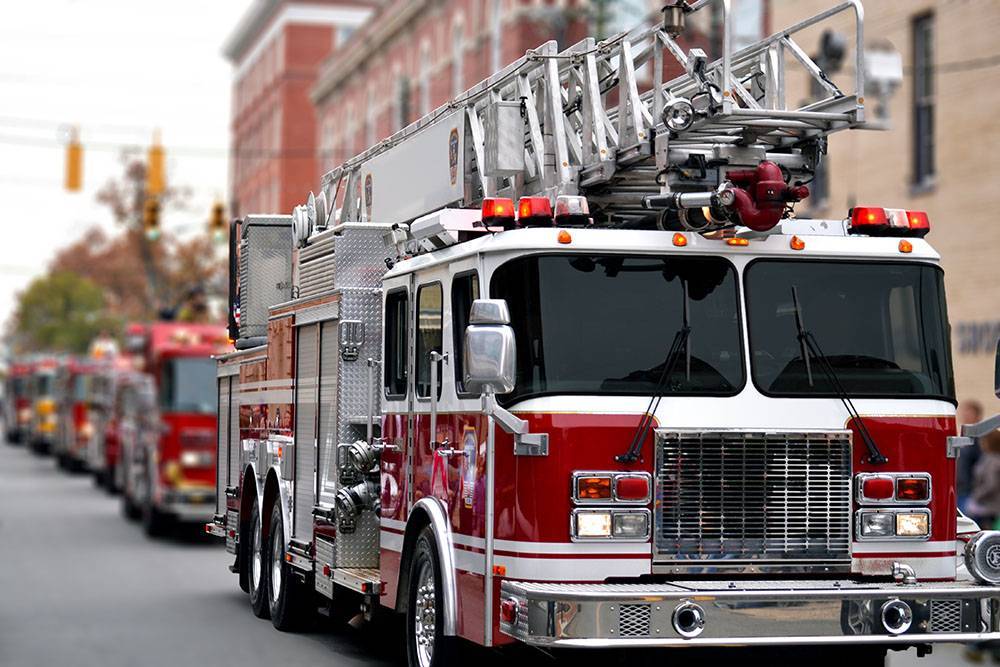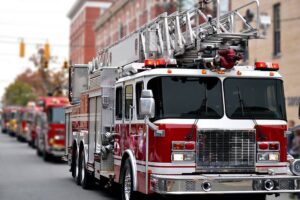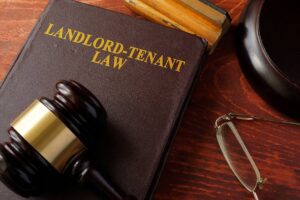The Legal Consequences of the Las Vegas Alpine Motel Apartments Fire

“The smoke was getting really heavy. We were trapped inside the building. I was panicking. I thought this was it. I was going to die,” said Joe, one of the residents of the Alpine Motel Apartments. He was facing an impossible choice: stay in the room that was quickly filling with smoke or jump out of his third-story window and take his chances with the fall. Joe chose the latter, sustaining a fractured arm and head injury. Six of Joe’s friends and neighbors weren’t so lucky and perished because of the fire.
Multiple Fire Code Violations Have Deadly Consequences

In the wee hours of December 21, 2019, residents of the three-story Alpine Motel Apartments in downtown Las Vegas were confronted with one of the deadliest fires in the history of the city of Las Vegas. “Someone started pounding on our door — ‘fire, fire, fire,'” according to several residents.” We tried to get out through the back stairwell, but the door was bolted shut. Don [Bennett], the building maintenance man, was trying to get it open but the smoke was too much for him.” Bennett died as a result of his heroic efforts to save others. In the end, six people died and 13 others were injured.
According to initial reports from Las Vegas Fire Marshal Robert Nolan, the fire was likely accidental and started in a stove in a first-floor unit. Several residents confirmed that the building, built in 1972, did not have heat and tenants used their stoves to heat their apartments in the winter. Other residents stated their smoke detectors were not functional. City of Las Vegas documents (Las Vegas Fire & Rescue: Address Inspection History) reveal the Alpine Motel Apartments had 16 fire code violations after the inspection completed the day after the fire.
If the allegations of the Alpine Motel Apartments residents and the fire code violations are shown to be true, the potential legal consequences for the building owners could be severe.
When Is a Landlord Held Liable for Criminal Damages in Nevada?
In Nevada, a landlord is required to maintain his or her dwellings in a habitable condition. NRS § 118A.290 states “the landlord shall at all times during the tenancy maintain the dwelling unit in a habitable condition.” A dwelling unit is not habitable if it violates provisions of housing or health codes concerning the health, safety, sanitation, or fitness for habitation of the dwelling unit. The unit must also have adequate heating facilities that conform to applicable laws when installed, and are regularly maintained to ensure they are in good working order.
Further, according to Nevada Revised Statute 202.595, a person may be held criminally liable if he performs any act or neglects any duty imposed by law in willful or wanton disregard of the safety of persons or property. If the act or neglect results in substantial bodily harm or the death of a person, that person can be punished for a category C felony and a minimum term of imprisonment of not less than 1 year and a maximum term of not more than 5 years. In addition to any other penalty, the court may impose a fine of not more than $10,000, unless a greater fine is authorized or required by statute.
Additionally, pursuant to Nevada Revised Statute 200.070, a person may be held criminally liable for involuntary manslaughter even if there is no intent to cause harm to another person. According to the statute, “involuntary manslaughter is the killing of a human being, without any intent to do so, in the commission of an unlawful act, or a lawful act which probably might produce such a consequence in an unlawful manner, but where the involuntary killing occurs in the commission of an unlawful act, which, in its consequences, naturally tends to destroy the life of a human being.” Involuntary manslaughter is a category-D felony, subject to a minimum term of not less than 1 year, a maximum term of not more than 4 years, and a fine of not more than $5,000.
When Is a Landowner Held Liable for Civil Damages in Nevada?
Nevada statutes impose civil liability against property owners for acting carelessly or negligently and causing injury to others. According to NRS § 41.130, “whenever any person shall suffer personal injury by wrongful act, neglect, or default of another, the person causing the injury is liable to the person injured for damages; and where the person causing the injury is employed by another person or corporation responsible for the conduct of the person causing the injury, that other person or corporation so responsible is liable to the person injured for damages.”
 In addition to the above, a landowner may be held liable for civil damages for violating a law, ordinance, or regulation such as NRS 118A.290, discussed above. When a defendant violates a statute which was designed to protect a class of persons to which an injured person belongs, and thereby proximately causes injury to that person, such a violation constitutes negligence per se, unless the defendant can show that the violation was excused. See Gordon v. Hurtado, 96 Nev. 375, 609 P.2d 327 (1980); Southern Pacific Co. v. Watkins, 83 Nev. 471, 435 P.2d 498 (1967). See generally, W. Prosser, Handbook of the Law of Torts, § 36 (4th ed. 1971). Barnes v. Delta Lines, Inc., 99 Nev. 688, 690, 669 P.2d 709, 710-11 (1983). See also Horvath v. Burt, 98 Nev. 186, 643 P.2d 1229 (1982).
In addition to the above, a landowner may be held liable for civil damages for violating a law, ordinance, or regulation such as NRS 118A.290, discussed above. When a defendant violates a statute which was designed to protect a class of persons to which an injured person belongs, and thereby proximately causes injury to that person, such a violation constitutes negligence per se, unless the defendant can show that the violation was excused. See Gordon v. Hurtado, 96 Nev. 375, 609 P.2d 327 (1980); Southern Pacific Co. v. Watkins, 83 Nev. 471, 435 P.2d 498 (1967). See generally, W. Prosser, Handbook of the Law of Torts, § 36 (4th ed. 1971). Barnes v. Delta Lines, Inc., 99 Nev. 688, 690, 669 P.2d 709, 710-11 (1983). See also Horvath v. Burt, 98 Nev. 186, 643 P.2d 1229 (1982).
Here, the landowner could be held liable for civil damages if it is found that they failed to follow health and safety regulations regarding fire exits, smoke detectors, or fire alarms, or if they failed to provide heat to the property, causing residents to use their ovens for heat.
When Is a Landowner Held Liable for Punitive Damages in Nevada?
In addition to criminal penalties and civil damages, a landowner may also be held liable for civil punitive damages. Punitive damages are designed to punish and deter a defendant’s culpable conduct and act as a means for the community to express outrage and distaste for such conduct.
Punitive damages may be assessed where it is proven by clear and convincing evidence that the defendant has been guilty of oppression, fraud or malice. “‘Malice, expressed or implied’ means conduct which is intended to injure a person or despicable conduct which is engaged in with a conscious disregard of the rights or safety of others.” Similarly, “‘Oppression’ means despicable conduct that subjects a person to cruel and unjust hardship with conscious disregard of the rights of the person.” Both definitions utilize the conscious disregard of a person’s rights as a common mental element, which in turn is defined as “the knowledge of the probable harmful consequences of a wrongful act and a willful and deliberate failure to act to avoid those consequences.” Countrywide Home Loans, Inc. v. Thitchener, 124 Nev. 725, 739, 192 P.3d 243, 252 (2008).
Except for a few exceptions, punitive damages in Nevada are limited to either three times the amount of compensatory damages awarded to the plaintiff if the amount of compensatory damages is $100,000 or more; or three hundred thousand dollars if the amount of compensatory damages awarded to the plaintiff is less than $100,000.
Equitable Relief and Other Monetary Damages
The Nevada statutes also allow for another type of civil recovery, called equitable relief. This is when the court orders a person to either do something, refrain from doing something, or both. NRS § 41.800 (1)(a) provides that a person shall not intentionally obstruct [t]he ingress or egress to any public or private property from any other public or private place in such a manner as not to leave a free passageway for persons…lawfully seeking to enter or leave the property.
If there is a violation of this obstruction statute, then pursuant to NRS§41.800(2)(a)-(d), a civil action may be brought in court for any or all of the following relief:
- Declaratory and injunctive relief, including, without limitation, injunctive relief to enjoin (stop/cease) any ongoing activity that violates any provision of subsection one of this statute. For the purposes of injunctive relief, the person who brings an action pursuant to this subsection is entitled to a rebuttable presumption of irreparable harm.
- Actual damages.
- Reasonable attorney’s fees and costs.
- Any other legal or equitable relief that the court deems appropriate under the circumstances.
Nevada laws governing landowner liability are designed to ensure the safety and security of occupiers of that land — but they can be complicated and difficult to understand. When a landowner fails in his or her obligations, members of the community can be seriously injured or killed. If you have any questions about Nevada premises liability law, Nevada landowner liability law, or punitive damages, please contact John Shook or Leonard Stone online or call us at (702) 570-0000.





